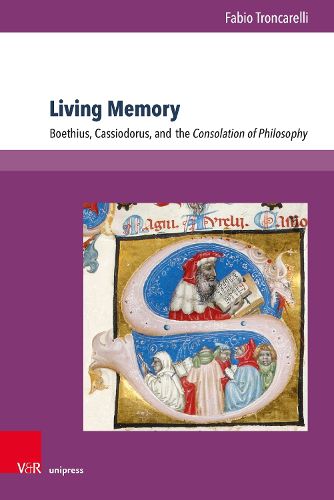Readings Newsletter
Become a Readings Member to make your shopping experience even easier.
Sign in or sign up for free!
You’re not far away from qualifying for FREE standard shipping within Australia
You’ve qualified for FREE standard shipping within Australia
The cart is loading…






Fabio Troncarelli examines the Late Antique Cassiodorian edition of the "Consolation of Philosophy" by Boethius in this new study consisting of five chapters. The first one offers a brief sketch of the lives of the two protagonists of the story. The second concerns the medieval copies of the edition, some very close to the original archetype, preserving even its formal aspect, and the indication of its first transcription in Ravenna in the sixth century. The third chapter establishes a comparison between some typical rhetorical, philosophical, and editorial methods used by Cassiodorus and the ones found in Boethius's edition. The fourth chapter explores possible reasons for Cassiodorus's decision to produce such an edition during the years of the collapse of Osthrogotic rule in Italy. The final chapter discusses the "living memory" of Boethius's reputation at Vivarium and the relationships between his murder and Amalsuintha's murder as understood and covertly preserved by the Vivarian monks.
$9.00 standard shipping within Australia
FREE standard shipping within Australia for orders over $100.00
Express & International shipping calculated at checkout
Stock availability can be subject to change without notice. We recommend calling the shop or contacting our online team to check availability of low stock items. Please see our Shopping Online page for more details.
Fabio Troncarelli examines the Late Antique Cassiodorian edition of the "Consolation of Philosophy" by Boethius in this new study consisting of five chapters. The first one offers a brief sketch of the lives of the two protagonists of the story. The second concerns the medieval copies of the edition, some very close to the original archetype, preserving even its formal aspect, and the indication of its first transcription in Ravenna in the sixth century. The third chapter establishes a comparison between some typical rhetorical, philosophical, and editorial methods used by Cassiodorus and the ones found in Boethius's edition. The fourth chapter explores possible reasons for Cassiodorus's decision to produce such an edition during the years of the collapse of Osthrogotic rule in Italy. The final chapter discusses the "living memory" of Boethius's reputation at Vivarium and the relationships between his murder and Amalsuintha's murder as understood and covertly preserved by the Vivarian monks.